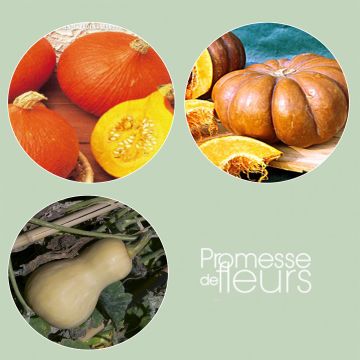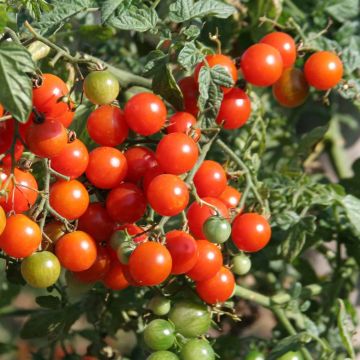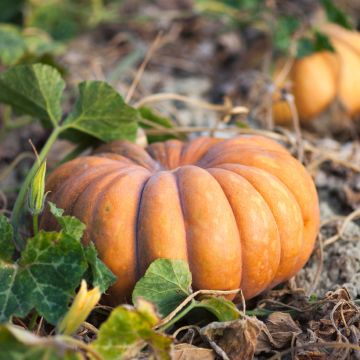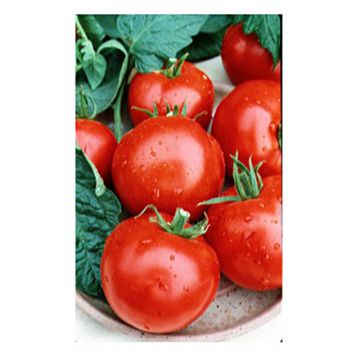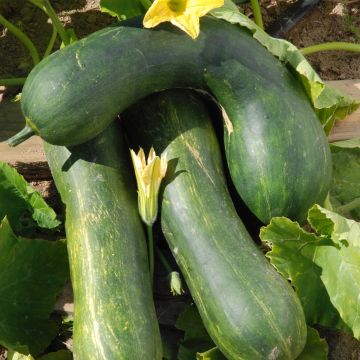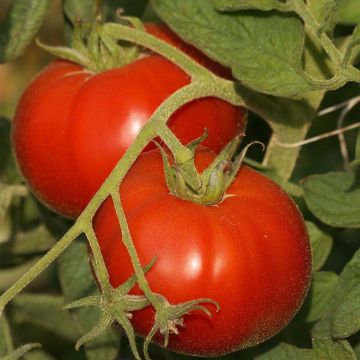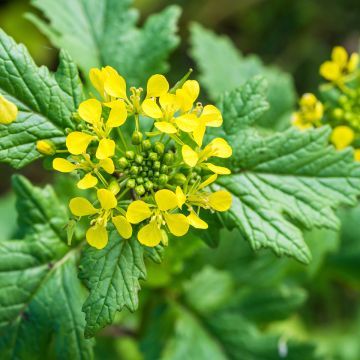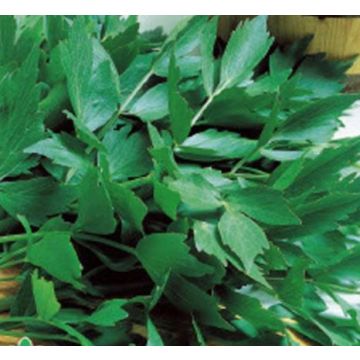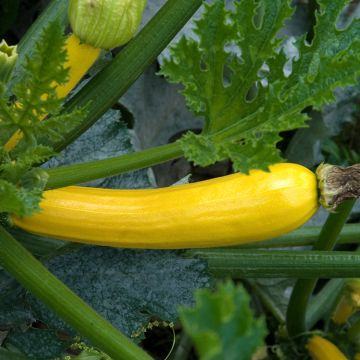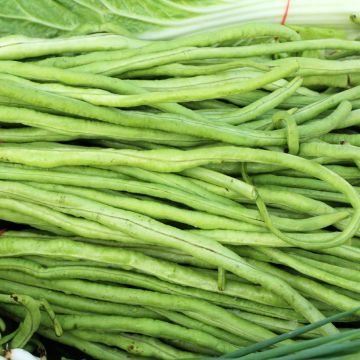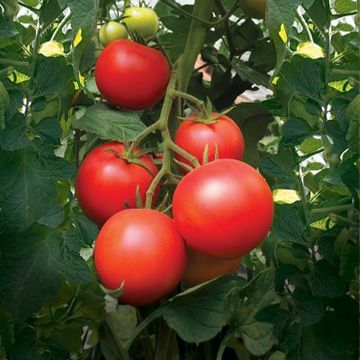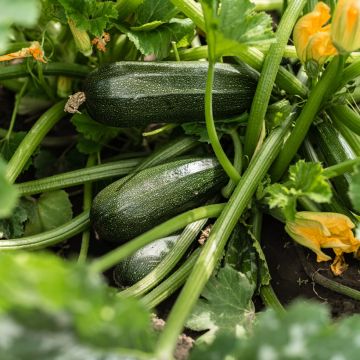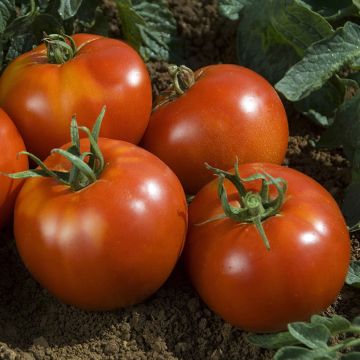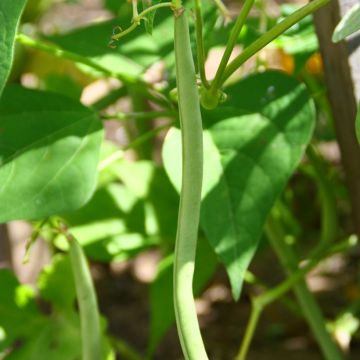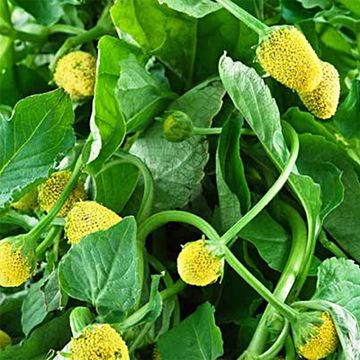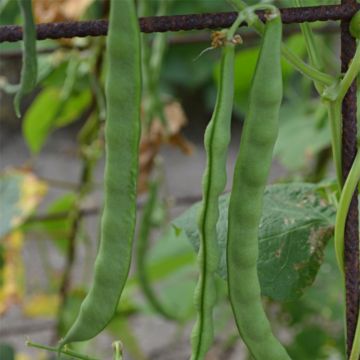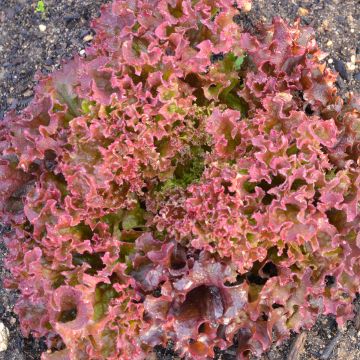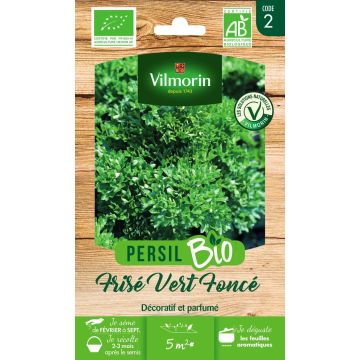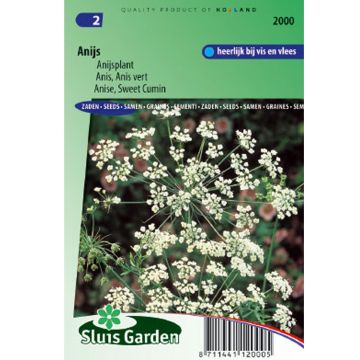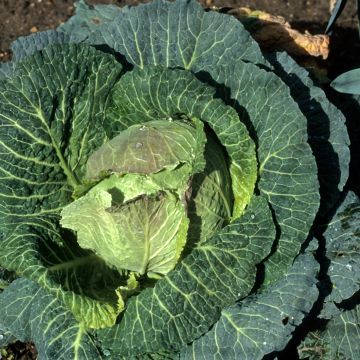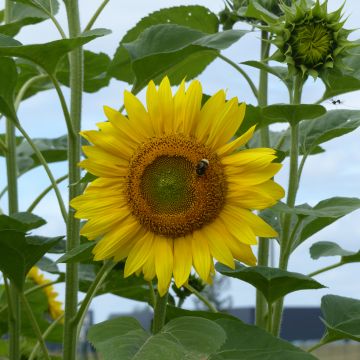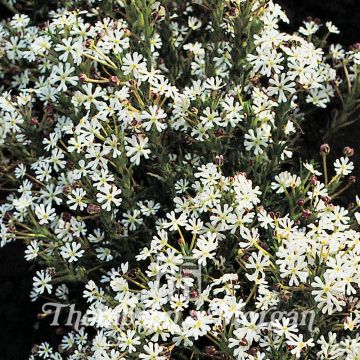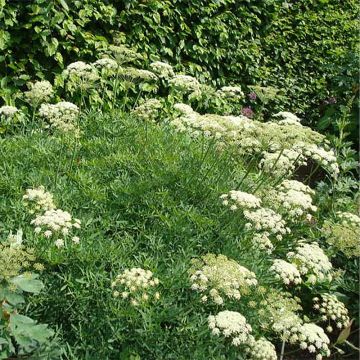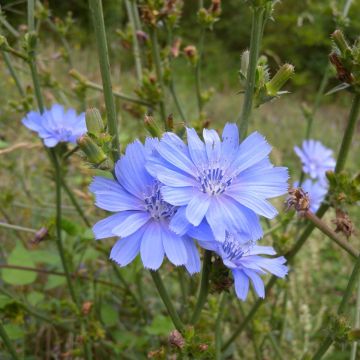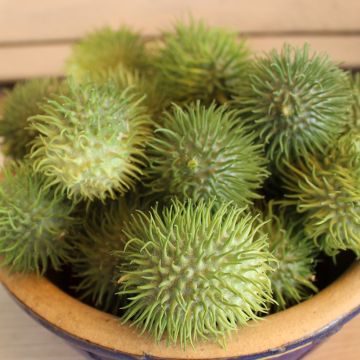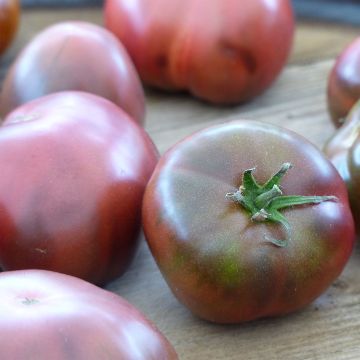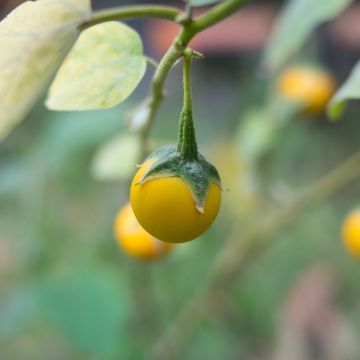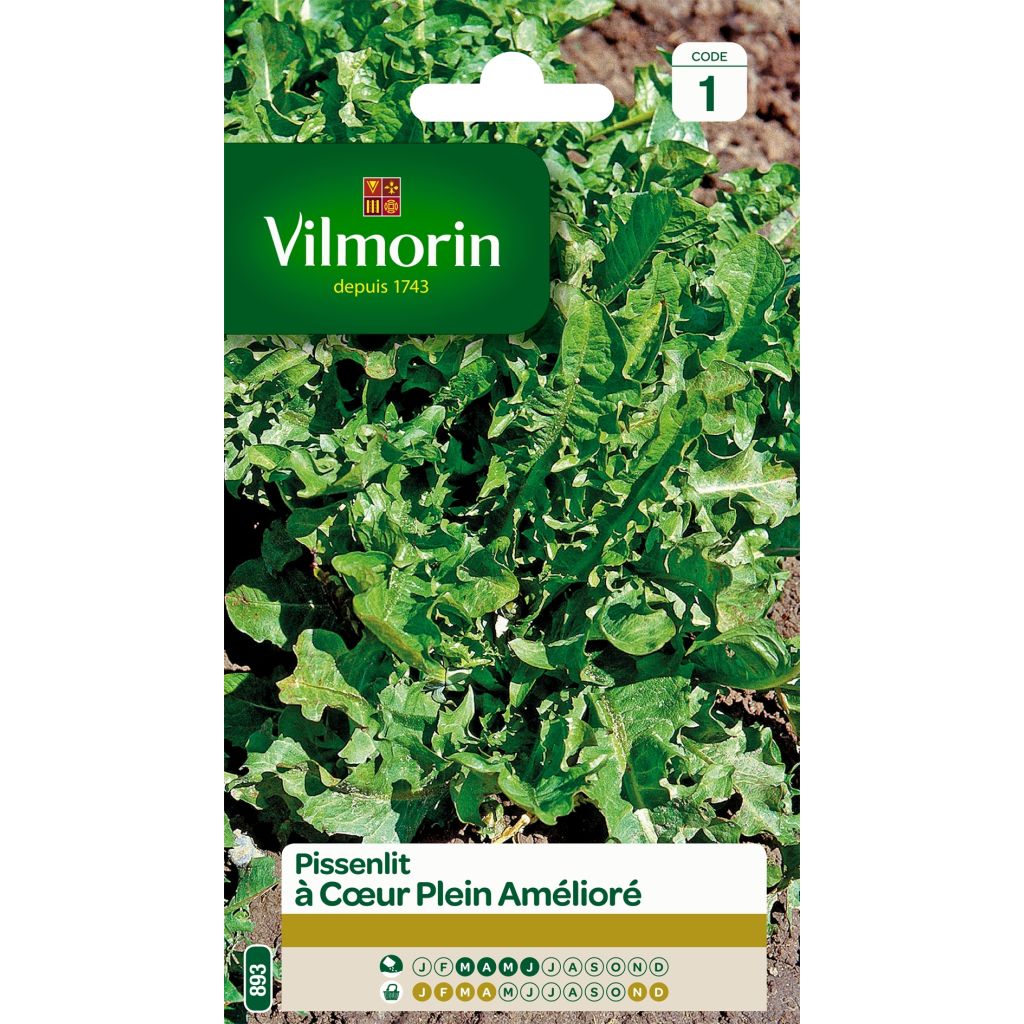

Pissenlit à Cœur Plein amélioré - Vilmorin
Taraxacum officinale Cœur Plein amélioré
Taraxacum officinale Cœur Plein amélioré
Common Dandelion, Lion's Tooth, Priest's Crown, Puff Ball
have not sprouted! and this despite good conditions
brice, 06/03/2024
Why not try an alternative variety in stock?
View all →This plant carries a 6 months recovery warranty
More information
We guarantee the quality of our plants for a full growing cycle, and will replace at our expense any plant that fails to recover under normal climatic and planting conditions.
Seed-only orders are dispatched by sealed envelope. The delivery charge for seed-only orders is €3.90.
Description
The Improved Full-Hearted Dandelion is a highly productive variety that offers beautiful, compact and well-filled rosettes. Although commonly known as an adventive, the dandelion is full of both dietary and gustatory qualities. Sow from March to June for a harvest from November to April.
Dandelion (Taraxacum officinale), also known as Lion's Tooth, is a perennial plant belonging to the Asteraceae family. Is it necessary to introduce this wild plant? The bright yellow of its flowers, the characteristic tooth-like shape of its leaves, and its feathery seeds make it one of the most well-known "weeds".
The common dandelion can be found naturally in meadows, along roadsides, and even in the middle of paved areas in cities, as well as in the best-maintained lawns, where it is often relentlessly hunted!
And perhaps it is because of this commonness that its qualities are ignored: rich in vitamin C and beta-carotene, naturally diuretic, draining, and detoxifying, its young leaves are excellent in salads. They are also very tasty when cooked, similar to spinach, quickly with a little garlic and a drizzle of lemon juice. Its flowers are also edible and can be used to make jelly, syrup, and a delicious amber-coloured aperitif wine.
In the garden, the Dandelion adapts to ordinary soil, even heavy and compacted. It prefers full sun or partial shade.
Harvest: young leaves are harvested from November to April, when they are still young. Flowers are generally picked in April.
Storage: leaves can be refrigerated for a few days or frozen for a few months, after being blanched for a few minutes in boiling water.
Gardener's tip: to obtain very tender dandelion leaves, it is possible to blanch them by covering them with a small mound of soil, about 15cm (6in) high, or by covering them, as the English do with rhubarb, with a large clay pot.
Report an error about the product description
Harvest
Plant habit
Foliage
Botanical data
Taraxacum
officinale
Cœur Plein amélioré
Asteraceae
Common Dandelion, Lion's Tooth, Priest's Crown, Puff Ball
Cultivar or hybrid
Annual
Other Vegetable seeds from A to Z
Planting and care
Sowing:
The germination of the Dandelion occurs at a temperature of about 10° and takes about 15 days.
Sowing is done directly in the soil, by placing a seed every 4/5 centimeters (2 inches) in rows spaced 30 cm (12in) apart. When the young plants have reached the stage of 4/5 leaves, thin them out by keeping only one plant every 15cm (6in) or so.
Cultivation:
The Dandelion is very adaptable to soil conditions. Regularly weed the plot and don't hesitate to water during dry weather. To stimulate leaf production, it is advisable to harvest the floral stems.
Seedlings
Care
Intended location
-
, onOrder confirmed
Reply from on Promesse de fleurs
Vegetable seeds
Haven't found what you were looking for?
Hardiness is the lowest winter temperature a plant can endure without suffering serious damage or even dying. However, hardiness is affected by location (a sheltered area, such as a patio), protection (winter cover) and soil type (hardiness is improved by well-drained soil).

Photo Sharing Terms & Conditions
In order to encourage gardeners to interact and share their experiences, Promesse de fleurs offers various media enabling content to be uploaded onto its Site - in particular via the ‘Photo sharing’ module.
The User agrees to refrain from:
- Posting any content that is illegal, prejudicial, insulting, racist, inciteful to hatred, revisionist, contrary to public decency, that infringes on privacy or on the privacy rights of third parties, in particular the publicity rights of persons and goods, intellectual property rights, or the right to privacy.
- Submitting content on behalf of a third party;
- Impersonate the identity of a third party and/or publish any personal information about a third party;
In general, the User undertakes to refrain from any unethical behaviour.
All Content (in particular text, comments, files, images, photos, videos, creative works, etc.), which may be subject to property or intellectual property rights, image or other private rights, shall remain the property of the User, subject to the limited rights granted by the terms of the licence granted by Promesse de fleurs as stated below. Users are at liberty to publish or not to publish such Content on the Site, notably via the ‘Photo Sharing’ facility, and accept that this Content shall be made public and freely accessible, notably on the Internet.
Users further acknowledge, undertake to have ,and guarantee that they hold all necessary rights and permissions to publish such material on the Site, in particular with regard to the legislation in force pertaining to any privacy, property, intellectual property, image, or contractual rights, or rights of any other nature. By publishing such Content on the Site, Users acknowledge accepting full liability as publishers of the Content within the meaning of the law, and grant Promesse de fleurs, free of charge, an inclusive, worldwide licence for the said Content for the entire duration of its publication, including all reproduction, representation, up/downloading, displaying, performing, transmission, and storage rights.
Users also grant permission for their name to be linked to the Content and accept that this link may not always be made available.
By engaging in posting material, Users consent to their Content becoming automatically accessible on the Internet, in particular on other sites and/or blogs and/or web pages of the Promesse de fleurs site, including in particular social pages and the Promesse de fleurs catalogue.
Users may secure the removal of entrusted content free of charge by issuing a simple request via our contact form.
The flowering period indicated on our website applies to countries and regions located in USDA zone 8 (France, the United Kingdom, Ireland, the Netherlands, etc.)
It will vary according to where you live:
- In zones 9 to 10 (Italy, Spain, Greece, etc.), flowering will occur about 2 to 4 weeks earlier.
- In zones 6 to 7 (Germany, Poland, Slovenia, and lower mountainous regions), flowering will be delayed by 2 to 3 weeks.
- In zone 5 (Central Europe, Scandinavia), blooming will be delayed by 3 to 5 weeks.
In temperate climates, pruning of spring-flowering shrubs (forsythia, spireas, etc.) should be done just after flowering.
Pruning of summer-flowering shrubs (Indian Lilac, Perovskia, etc.) can be done in winter or spring.
In cold regions as well as with frost-sensitive plants, avoid pruning too early when severe frosts may still occur.
The planting period indicated on our website applies to countries and regions located in USDA zone 8 (France, United Kingdom, Ireland, Netherlands).
It will vary according to where you live:
- In Mediterranean zones (Marseille, Madrid, Milan, etc.), autumn and winter are the best planting periods.
- In continental zones (Strasbourg, Munich, Vienna, etc.), delay planting by 2 to 3 weeks in spring and bring it forward by 2 to 4 weeks in autumn.
- In mountainous regions (the Alps, Pyrenees, Carpathians, etc.), it is best to plant in late spring (May-June) or late summer (August-September).
The harvesting period indicated on our website applies to countries and regions in USDA zone 8 (France, England, Ireland, the Netherlands).
In colder areas (Scandinavia, Poland, Austria...) fruit and vegetable harvests are likely to be delayed by 3-4 weeks.
In warmer areas (Italy, Spain, Greece, etc.), harvesting will probably take place earlier, depending on weather conditions.
The sowing periods indicated on our website apply to countries and regions within USDA Zone 8 (France, UK, Ireland, Netherlands).
In colder areas (Scandinavia, Poland, Austria...), delay any outdoor sowing by 3-4 weeks, or sow under glass.
In warmer climes (Italy, Spain, Greece, etc.), bring outdoor sowing forward by a few weeks.

































